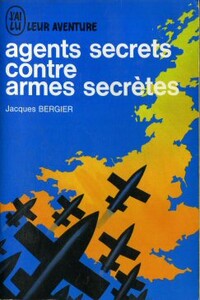I am not bitter. I am angry. And I ask myself over and over again, How could this jury fail to see? Was there something else we could have done? Something more we could have said? How many times did I lead that jury along the blood trail? Following the bloody prints of that rare and expensive Bruno Magli loafer-size 12, the same as Simpson wears-leading away from the bodies, up the front steps to the rear gate of Nicole Brown’s condo. A blood trail leading right to the foot of O. J. Simpson’s bed, for God’s sake! On Ronald Goldman’s shirt, a head hair that matched those of the defendant. Simpson’s hair. On the navy-blue cap dropped at the crime scene, the same black hairs, as well as a carpet fiber matching those found in the defendant’s Bronco. Stop and think for a moment. How did all this stuff get there? The defendant’s blood is found where there shouldn’t be blood. The defendant’s hair where there shouldn’t be hair. There was enough physical evidence in this case to convict O. J. Simpson twenty times over.
Defendant “not guilty” on all counts.
I feel bad about a lot of things. I feel bad for the Browns and the Goldmans, for the way the system failed them. I feel bad for my fellow deputies, who so often stayed at the courthouse until two or three A.M., working themselves into a stupor of fatigue. I feel bad for all the good cops at LAPD who got a bum rap because of the transgressions of a few. I feel bad for the D.A. investigators who pulled off some truly extraordinary feats of behind-the-scenes investigation. I feel especially bad for our young law clerks, who poured their hearts into this case for fourteen months-only to have them broken by that unthinkable verdict. For many, it was their first case. How could anyone explain to them what an anomaly it was? No other criminal case in American history has generated such massive publicity. No other criminal defendant has entered the dock so perfectly insulated by personal wealth and public sympathy. What those fresh, idealistic young clerks saw, to their dismay, was a defendant who was virtually unconvictable. And that, quite understandably, shook their faith in American justice.
I’m ready now to do this. I’m upright at my laptop, ready to begin this story. Every time I feel overwhelmed by the desire to curl up on the couch and pull an afghan over my head, I’ll fight that urge down, because this is important. I just ask you to understand how hard this is. The event is so huge, it’s difficult to figure out how to shrink it into words, or even to make a start. The definitive account, I cannot give you. No one can. But I can tell you what the case meant to me. I can tell you about the strategies and the courtroom skirmishes. About moments of exultation and days of heartache. I can give you my private reflections. Particularly those. Because that’s what it all comes down to. Just as all politics is local, all good history is personal.
About the best thing you could say about my life before Monday, June 13, 1994, is that my problems were my problems. Nobody else was interested in them. No one except a handful of intimates, including my friend Lynn Reed, another deputy D.A. in the L.A. County District Attorney’s office. For weeks, she’d been urging me to file for divorce.
“Do it! Just do it!” she would tell me. I knew she was right. I’d been separated from my husband, Gordon, for about six months. In January he had moved out of our dilapidated tract house in Glendale, a suburb of Los Angeles. He was not deserting me; I’d asked him to leave. Our marriage had degenerated into the gray misery that appears vivid only in retrospect. I will not go into particulars because they are no one’s business but our own.
Suffice it to say that the previous year had been hell. I’d just left the D.A.‘s Special Trials Unit for a management job in Central Operations. That allowed me to spend evenings with my sons. Tyler was just a baby; Matthew was then a toddler. I enjoyed better prospects as a pencil pusher, but the work left me in a state of chronic discontent. The trade-off for a carpeted office and a shot at six figures, I discovered, is boredom. Absolute, brain-numbing boredom. Old line lawyers like me are adrenaline junkies. We like getting out on the streets with the police and arguing before juries. Scheduling cases for other attorneys to try is a drag.





